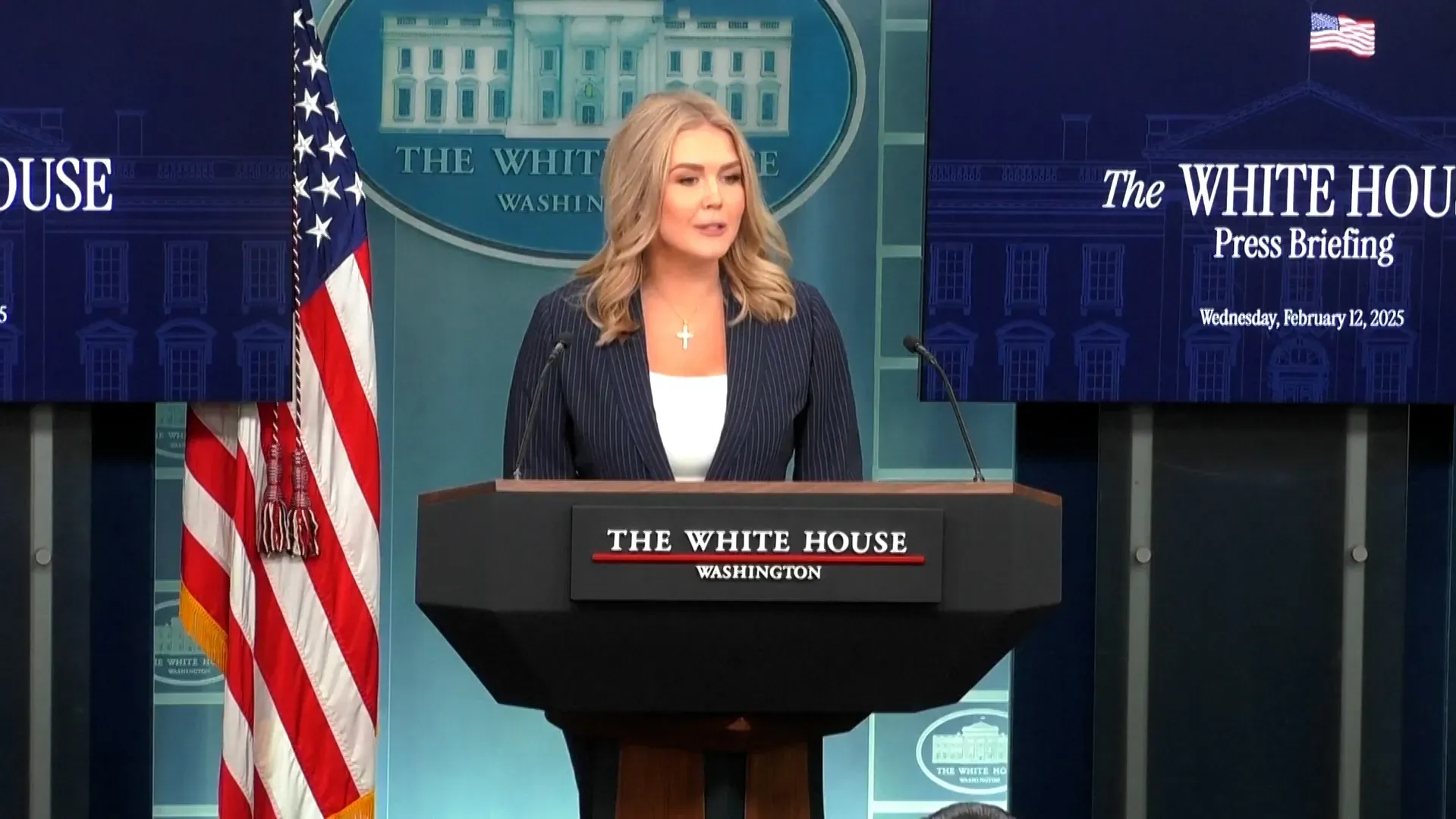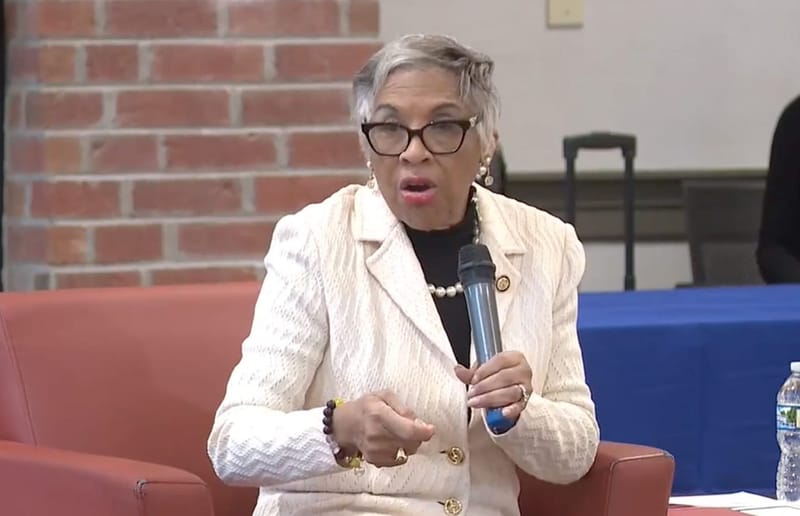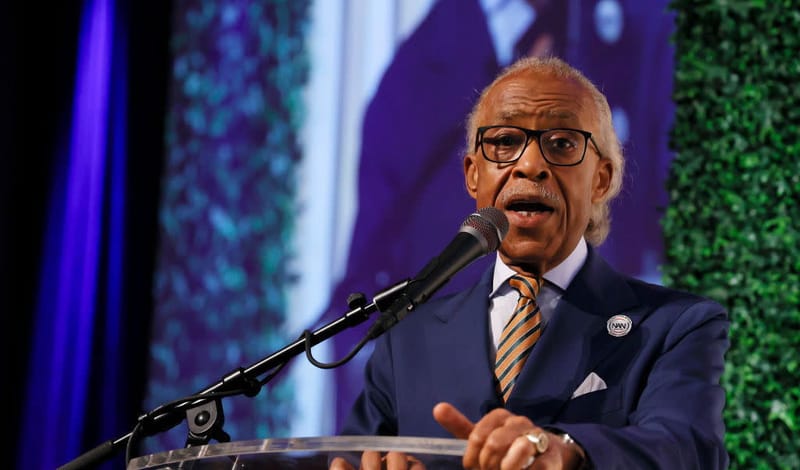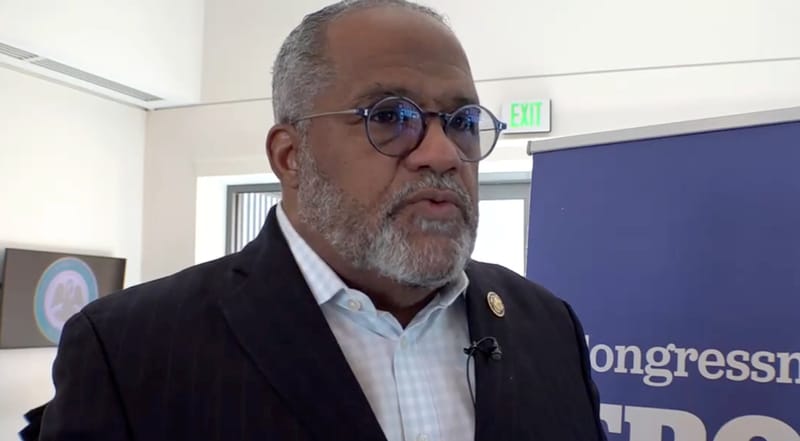White House Bars Reporter Over AP Style Policy on Gulf of Mexico
The unidentified AP reporter was turned away from the White House event Tuesday afternoon, followed by a second AP journalist who was denied access to a later gathering in the Diplomatic Reception Room.

WASHINGTON — The White House barred an Associated Press reporter from an Oval Office event on Tuesday after the news agency refused to change its style policy regarding the name of the Gulf of Mexico, which President Donald Trump has ordered renamed the "Gulf of America."
The unidentified AP reporter was turned away from the White House event Tuesday afternoon, followed by a second AP journalist who was denied access to a later gathering in the Diplomatic Reception Room. The unprecedented move came after administration officials threatened restrictions unless the AP complied with the name change.
AP Executive Editor Julie Pace condemned the White House’s action, calling it “unacceptable.”
“It is alarming that the Trump administration would punish AP for its independent journalism,” Pace said. “Limiting access to the Oval Office based on the content of AP’s reporting not only severely impedes the public’s access to independent news, it plainly violates the First Amendment.”
The administration has not issued a public statement on the decision, and there was no indication that other news organizations faced similar restrictions. However, the White House has a history of tense relations with the media. Last week, a second group of news organizations was removed from Pentagon office space.
Controversy Over Gulf Renaming
Trump, who announced plans to rename the Gulf of Mexico before taking office, signed an executive order enacting the change on Inauguration Day. The move drew criticism from Mexico’s president and international observers, who noted the body of water has been recognized as the Gulf of Mexico for more than 400 years. The gulf borders both the United States and Mexico.
The AP announced three days after Trump’s inauguration that it would continue referring to the Gulf of Mexico while acknowledging the administration’s name change. The agency cited its responsibility to maintain internationally recognizable place names for a global audience.
The AP Stylebook, widely used by journalists and writers worldwide, provides standardized guidance on language and geographic names. The White House Correspondents’ Association denounced the administration’s decision, urging officials to reverse course.
“The White House cannot dictate how news organizations report the news, nor should it penalize working journalists because it is unhappy with their editors’ decisions,” said Eugene Daniels, WHCA president.
Broader Implications
The decision to bar AP reporters raises concerns about press freedoms, said Tim Richardson, program director for journalism and misinformation at PEN America.
“Barring a journalist based on editorial choices is a direct affront to the First Amendment,” Richardson said. “A free press cannot function under government-imposed restrictions on language and reporting.”
Meanwhile, major mapping services have begun adopting the administration’s terminology. Google Maps recently updated its listings to “Gulf of America,” citing a policy of following official U.S. government designations. Apple Maps, as of Tuesday evening, displayed both names in search results.
Trump also moved to restore the name of Mount McKinley in Alaska, reversing a 2015 decision by President Barack Obama to officially recognize the Indigenous name, Denali. The AP said last month that it would adopt the change, as it falls within U.S. borders and under the president’s authority to alter federal geographical names.






